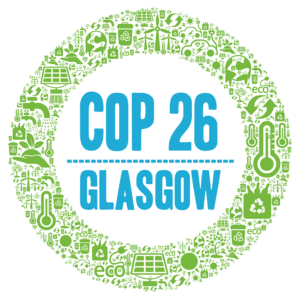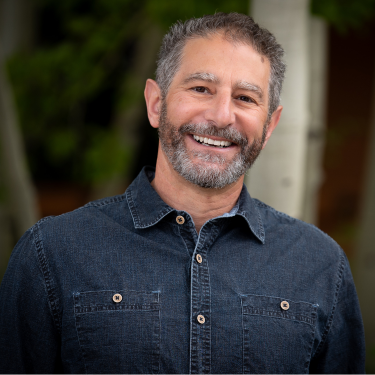December 2, 2021
It’s been a rare moment in history as the world’s attention has been focused on climate change over the past few weeks. Here at home, the U.S. Congress passed an infrastructure package with bipartisan support that includes federal money that promises to make the U.S. more resilient in the face of the present and growing challenges posed by climate change. The $1.2 trillion bill will make investments in the power grid, rail, roads, ports and broadband, but also in energy efficiency, electric vehicle charging and critical funding for upgrading water infrastructure in tribal and other communities. President Biden lauded the package as the biggest investment in American infrastructure in a generation.
$1,200,000,000,000
Infrastructure Investment
Before the ink was dry on the infrastructure package, more than 30,000 people from nations across the globe were gathering in Glasgow, Scotland, for the latest round of international negotiations to combat the threat of climate change at COP26. In a promising build up to Glasgow, over 100 leading businesses made their own pledges to address climate change. Throughout the conference, we saw additional important pledges to reduce methane emissions, and the U.S.’ return to the international agreements following the Trump administration’s withdrawal from previous agreements.
30,000
People at COP26
And there is yet another opportunity on the horizon, President Biden’s Build Back Better plan, which would invest an additional $550 billion to address climate change in the U.S. If the plan makes it through Congress’ reconciliation process, it would be the largest single investment to address climate change, ever. The draft of the plan includes money that would help clean the air in cities across the country, advance climate justice, invest in energy efficiency and clean energy to power our homes and offices, provide capital to advance clean energy opportunities and access to clean energy for tribal nations and on tribal lands, and make needed investments to transform and clean up our dirty transportation sector.
$550,000,000,000
To Address Climate Change
All of these developments are significant and collectively these steps represent progress. Each of the pledges and agreed upon actions could lead to more reductions in the climate pollution that is warming our atmosphere.
Unfortunately, it is all too little to address the challenge our species and our planet faces.
In spite of the successes mentioned above, the Glasgow conference has been most notable for who didn’t show up, pledges from high emitting nations that don’t have the force of law and are insufficient to meet the climate imperative, and rich nations’ failure to meet their obligations and past pledges to provide support to the world’s poorest and most at-risk nations. And while companies were applauded with great fanfare for pledging to bring their emissions in line with the reductions called for by the science, many of their commitments have proven empty, not accompanied by concrete plans to actually get the reductions to which they have committed. Worse still, many of the companies that have pledged to reduce their own footprint continue to fight all practical legislation to lock reductions into law in the U.S. and abroad through their business associations that aggressively lobby to fight legislation that would reduce emissions.
The sad fact of the matter is that the infrastructure plan, the agreements that came out of Glasgow and even Build Back Better (even though it will represent our largest federal commitment ever) are woefully inadequate if our hope is to be in position to meet the climate goals and pollution reduction targets that would keep global temperatures from rising more than 1.5° Celsius.

We didn’t come out of Glasgow with the binding international agreements that would require — not just suggest — the reductions we need. There will be no strong policy out of this Congress that would drive climate emission reductions at the scope and scale to put pollution reductions on track to avert the most catastrophic impacts of climate change. None of the major oil and gas producing nations of the world joined a pledge to stop handing out drilling permits and eventually to ban oil and gas production in their territories.
This is more than just a shame for all of us to witness. Lives and livelihoods are at stake both here at home and around the world for citizens that are on the frontlines of the impacts of climate change. And our timeline is growing short.
So, what has been true about climate change to date in our nation will remain true — almost every ton of emissions reductions that gets locked down and that we can count on, will get locked down not at the federal level, but out here in the states, by utility commissions, through state agencies, by leading communities and by tribal nations.
This means that the stakes are higher, and the expectations for action in our communities, in state legislatures and by state agencies must also be higher. State governments will have to do more. Governors and legislatures will need to combine ambitious pledges with concrete actions to implement those plans to guarantee that we get the pollution reductions we need. Utilities will need to put their money where their mouth is, agree to binding actions to their customers in front of the regulatory bodies that have oversight over their operations. State agencies will have to move more aggressively in passing rules and regulations that are consistent with goals to reduce emissions consistent with political pledges. And cities will have to back up the pledges they have made with real, time-limited actions that lock down pollution reductions.
We need international and federal solutions and commitments to be successful in the fight to reduce the most harmful impacts of climate change. We will have to organize and act to ensure that Washington and leading nations in the world follow the lead of communities, tribes and states that are doing more than making pledges.
On climate change, as with most things, pledges and good intentions simply aren’t enough. Outcomes, in this case, concrete steps and enforceable, verifiable and equitable actions that expeditiously lock down pollution reductions by the ton, the millions of tons and the gigatons, is how we should judge success. We must take the steps that actually result in the pollution reductions necessary to preserve a liveable planet for ourselves and for future generations.
WRA fights climate change to sustain the environment, economy, and people of the West. Our team of policy experts, scientists, economists, and attorneys has a 30-year history of working where decisions are made, sweating the details, creating evidence-based solutions and holding decision makers accountable.



